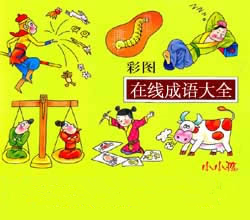英文读后感-On Science
王乙锟 北京一零一中学高一阅读书目:国家地理科学探索丛书 物理科学系列:《力与运动》《走进电的世界》生命科学系列:《你和你的基因》《观察细胞》《保护地球母亲》
I have got a lot of interesting scientific knowledge from the books of National Geographic Reading Expeditions, some of which are about life, physics. I really can’t help losing myself in the colorful pictures and clear words in the books. After reading the books, I have been considering a question: What if we lived without science?
Great changes have taken place in the world with the help of science. In the past, life was nasty, brutish and short. It is hard to imagine how our forefathers could do without so many conveniences that modern science brings about. Back then, only a small group of people enjoyed the very few comforts. But the majority of people didn’t even have sufficient food, let along their privilege to be educated. Anyway, it is science that changes the world and makes people’s life better and better, although it also leads to some bad aspects at the same time.
From the discovery of the gravity to the first step on the moon, we human beings have experienced a long process of developing science. And now, this process is still continuing much faster. New organisms are already being engineered, and new genetically modified crops promise benefits from higher yields and less use of harmful chemicals and so on. A lot of examples are showing this point. In the future, changes are likely to be even much greater as science reaches out to shape life itself. Maybe one day, the possibility that life existed on Mars billions of years ago will be potentially one of the greatest discoveries of our time. It is the force of the competition, we human beings’ inquiring mind and initiative that bring about the non-stopped development of science. Therefore, it is difficult and impossible to prevent science from changing the world and our life as well.
At present, we are in two minds about science. On the one hand, we are enjoying the sweet life as a result of the evelopment of science, and expect it to continue. And we are showing our interests into some scientific expeditions, such as the astronomy, the alien civilization, etc. On the other hand, we are distrustful of it, due to the lack of understanding of science. Some people thus far are still very superstitious, and they would even believe in superstitions rather than believe in science.
Stephen Hawking, one of the most remarkable scientists in the world, once said, “In a democratic society, the public needs to have a basic understanding of the science, so that it can make informed decisions and not leave them in the hands of experts.” This has reminded me of Professor Alan G. MacDiarmid from America, the person who got the Nobel Prize for chemistry in the year of 2000. In his lecture at Peking University this year, he put forward that science is people. He also expounded the importance of the basic science for the public. Evidently, every one of us does need science, or we can’t live without it.
Now that everyone needs science, why not take advantage of some means to give the public the right basic scientific knowledge? So when they face the problems such as acid rain, the greenhouse effect, nuclear weapons, environment destruction and some other problems, they can also make informed decisions on these subjects, just as what Hawking said. One aspect relies on what is taught in schools. But science is often taught in an uninteresting way and most students just learn it by rote to pass examinations. However, the final goal of learning science is not to pass examinations or to get a higher score; instead, we should try to make full use of it to change our world and life. While learning, we should try to ask more questions and we should have the courage of suspecting the knowledge in the books, as some of the scientific conclusions are likely to be corrected in the future. Who knows. So not only must we change our attitude towards science, but also the way of teaching and learning science.
In addition, science is always changing at a fast rate, and who we learn at school isn’t that sufficient to last a lifetime. So the mass media including TV, radio, newspaper, magazine and publishing company will play an important role in reporting the latest science in time. Moreover, the mass media can also popularize basic science to the public, because only in this way will more people realize what on earth science is.
“Scientists and engineers tend to express their ideas in the form of equations because they need to know the precise values of quantities. But for the rest of us, a qualitative grasp of scientific concepts is sufficient, and this can be conveyed by words and diagrams, without the use of equations”, said Stephen Hawking.
I agree with him very much, and, I’m fond of the wonderful words above, from Stephen Hawking.
For the development of science, are you ready?
相关作文: 买卡、快乐一起分享、这就是我、小房子、马蜂窝、画石膏画、亲子运动会、看望生病的姑妈、夏夜小曲、玩弹珠热门作文成语素材
- 哀感顽艳 原意是指内容凄切,文辞华丽,使愚笨和聪慧的人同样受感动。后多用来指艳情的小说、戏曲、电影中的感人情节。
- 匪夷所思 匪:不是;夷:平常。指言谈行动离奇古怪,不是一般人根据常情所能想象的。
- 风不鸣条 和风轻拂,树枝不发出声响。比喻社会安定。
- 按兵不举 犹按兵不动。
- 匪夷匪惠 夷:殷末周初的伯夷;惠:春秋时鲁国的柳下惠。既不是伯夷,又不是柳下惠;不具备这两位贤人的品德。形容才德不高而又驾驭的人。
- 分茅裂土 原指古代帝王分封诸侯时举行的仪式。后称分封诸侯。
- 安分知足 安于本分,对自己所得到的待遇知道满足。
- 飞沙走砾 沙:沙土;砾:小石块。沙土飞扬,小石块滚动。形容风势很猛。
- 白日做梦 大白天做梦。比喻根本不能实现的梦想。
- 百万雄师 为数众多、威武雄壮的军队。
- 诽誉在俗 诽:指诽谤;誉:赞扬;俗:风气、习惯。诽谤或赞扬在于当时的风习。后来引申指风气、习惯的作用非常大。
- 背信弃义 背:违背;信:信用;弃:扔掉;义:道义。违背诺言,不讲道义。
- 分毫不爽 比喻没有丝毫差错。
- 挨肩擦背 形容人多拥挤。
- 碧血丹心 满腔正义的热血,一颗赤诚的红心。形容十分忠诚坚定。
